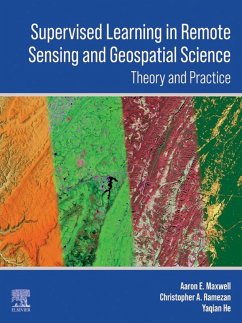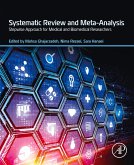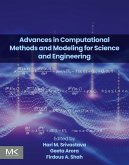Supervised Learning in Remote Sensing and Geospatial Science is an invaluable resource focusing on practical applications of supervised learning in remote sensing and geospatial data science. Emphasizing practicality, the book delves into creating labeled datasets for training and evaluating models. It addresses common challenges like data imbalance and offers methods for assessing model performance. This guide bridges the gap between theory and practice, providing tools and techniques for extracting actionable information from raw geospatial data.The book covers all aspects of supervised learning workflows, including preparing diverse remotely sensed and geospatial data inputs. It equips researchers, practitioners, and students with essential knowledge for applied mapping and modeling tasks, making it an indispensable reference for advancing geospatial science. - Provides a practical handbook for implementing supervised machine learning techniques to geospatial data, with step-by-step methodologies and case studies - Discusses the full spectrum of machine and deep learning methods for classification and regression tasks - Focuses on applied implementation, common issues, pitfalls, and best practices, providing practical considerations on dealing with these problems
Dieser Download kann aus rechtlichen Gründen nur mit Rechnungsadresse in A, B, BG, CY, CZ, D, DK, EW, E, FIN, F, GR, HR, H, IRL, I, LT, L, LR, M, NL, PL, P, R, S, SLO, SK ausgeliefert werden.









